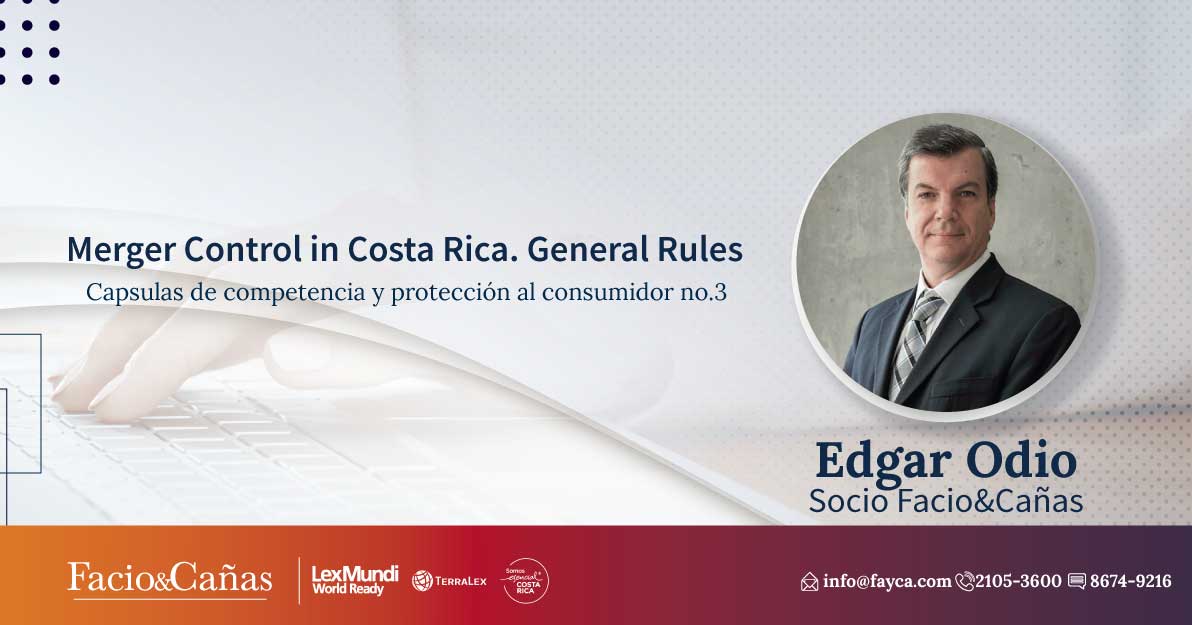Capsulas de competencia y protección al consumidor no.3
Mandatory merger control was introduced in 2012 in a system that allowed the parties to notified up to 5 days after closing. This merger control system was entirely modified in 2019 by the Law for the Strengthening of the Competition Authorities (the Law), which created a mandatory pre closing notification system with following general rules.
Article 89 defines concentrations as any form of change of control of assets that results on a long-lasting acquisition by one of the parties, or in the incorporation of a new economic agent. The definition also includes any transaction in which an economic agent acquires control of two or more separate economic agents that are independent, and full function joint ventures.
All concentration in the telecommunication markets must be notified to SUTEL (the telecommunications regulator and competition authority) as per article 56 of the Telecommunications Law, and all concentrations that meet the following three criteria must be notified ex ante to COPROCOM (the competition authority):
a.) There are at least two economic agents with activities with incidence in Costa Rica, at any time during the last two fiscal years.
b) The sum of total gross sales or the value of productive assets of all economic agents involved in the transaction exceed the threshold set by COPROCOM, which is currently around US$21 million (obviously it varies depending on the exchange rate, and it can be changed by COPROCOM at any time; therefore, this must be checked on case by case basis)
c) That at least two of the economic agents involved in the transaction have gross sales or productive assets over the threshold set by COPROCOM which is around US$1 million.
All economic agents are obligated to file the notification, if only one of them makes the filing, all of them shall be in compliance. Filing must be made at any time prior to closing and the transaction cannot me closed before COPROCOM´s approval, except in very exceptional cases, if authorized by COPROCOM.
There are some exemptions from filing obligation, which includes acquisitions that are part of the regular business activity of the purchaser and do not have the object or effect to concentrate the operations of independent economic agents do not have to be notified; and acquisitions of assets with the purpose to sell them in the short term provided the purchaser does not participate in the decision making of the commercial strategy with regard to such assets.
The merger control proceeding has two phases. In the first phase COPROCOM has 30 days to determine if the proposed transaction creates risks for the competition process. If it does, the case must be moved to the second phase. At the end of the first phase COPROCOM can authorize the transaction, approved it subject to conditions offered by the parties at filing; or move the case to the second phase, which may take up to 90 additional days. In practice the first phase takes about two months and the completion of second phase takes four additional months.
At the end of the second phase COPROCOM can: a) approve the transaction with or without conditions, b) ask the parties to propose conditions or remedies to the competitions risks that have been identified, or c) reject or prohibit the transaction if there are no available remedies to reduce or eliminate the anticompetitive effects.
COPROCOM shall approve concentrations that do not have the object or effect to be a significant obstacle to competition. This means a less structural approach in the competition analysis, but COPROCOM shall also consider whether the transaction creates or enhances market power and if the concentration will facilitate coordination among competitors, and if consumers will be harm.
If the concentration has the object or effect to be a significant obstacle for competition, COPROCOM shall consider: a) if the transaction is necessary to achieve efficiencies, b) if the transaction is necessary to prevent productive assets from leaving the market, c) if the anticompetitive effect can be remedied; and d) any other circumstance that may protect the interests of consumers.
The parties may propose commitments or remedies at any time during the proceeding, including the filing. In cases where the authority determines that there is significant obstacle for competition, the authority in the final resolution may approve the transaction subject to behavioural and/or structural remedies.


